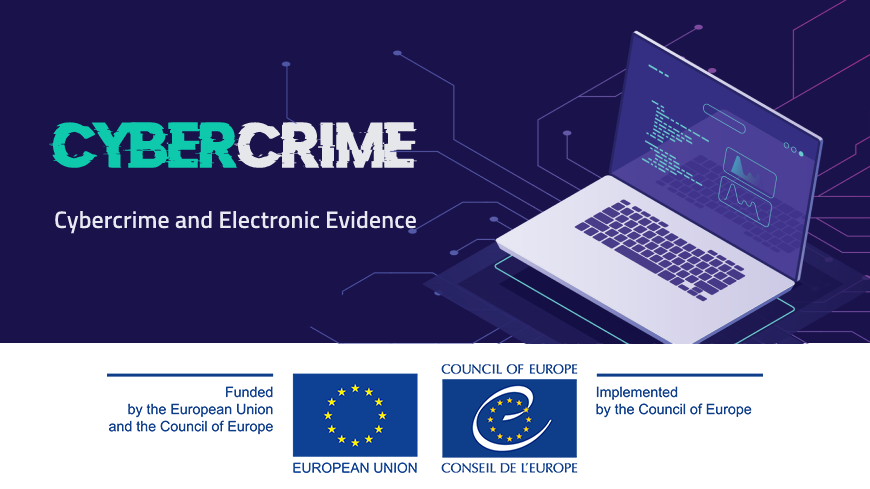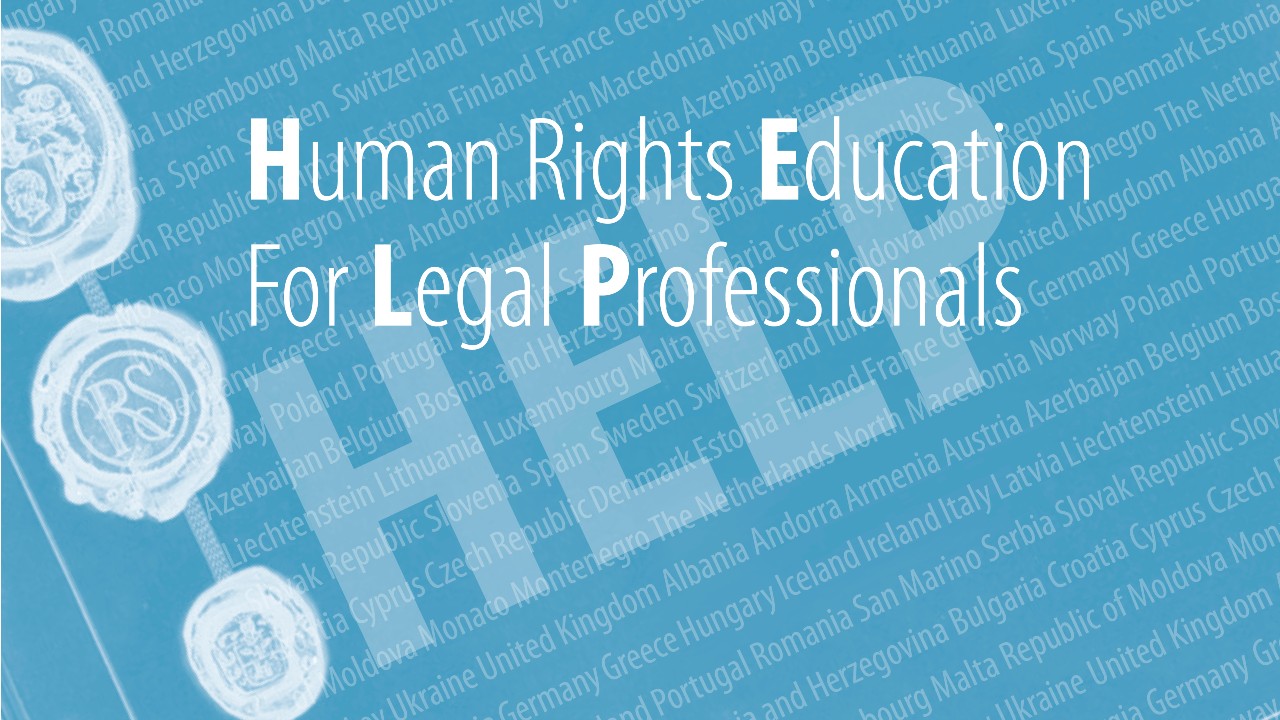The Council of Europe's Programme for Human Rights Education for Legal Professionals (HELP), in collaboration with the Judicial Training Centre of Slovenia, successfully launched the HELP online course on Cybercrime and Electronic Evidence for judges and prosecutors from Slovenia.
The event was held online on April 4th, 2024, and was organised under the framework of the EU-CoE project “Judicial Training on Rule of Law and Fundamental Rights”, funded under the European Union’s Justice Programme (2021-2027). The event benefited from the attendance of 23 participants, including seven judges and nine prosecutors from Slovenia. Other participants include judicial advisers, a senior crime police inspector, and a court president.
The launch event commenced with a warm welcome from Ana-Maria Telbis, Head of Justice and Human Rights Training Division at the Council of Europe, and Miodrag Đorđević, HELP Focal Point for Slovenia and President of the Supreme Court of the Republic of Slovenia. Their opening remarks underscored the importance of equipping legal professionals with the necessary tools to navigate the evolving landscape of cybercrime.
Giulia Lo Presti, the EU- CoE ‘RoL FRights’ Project Coordinator from the HELP Programme at the Council of Europe, delivered an insightful presentation on the HELP platform, providing attendees with a comprehensive overview of its functionalities and resources.
Following this, Judge Primož Gorkič facilitated a tour de table, encouraging participants to introduce themselves and share their expectations for the course.
Jan Kralik, representing the Cybercrime Unit of the Council of Europe, provided valuable insights into the actions undertaken by the CoE in combating cybercrime, shedding light on the organisation's efforts in ensuring digital security while upholding fundamental rights.
Additionally, Toni Kastelic, Head of the Criminal Police Directorate's Computer Investigation Centre, offered crucial perspectives on police investigations involving electronic devices, emphasising the importance of effective law enforcement strategies in tackling cyber threats.
Finally, participants benefited from the presentation of the HELP course on Cybercrime and Electronic Evidence by Primož Gorkič, serving as a preview of the comprehensive curriculum to be undertaken by participants under his guidance as HELP course tutor. Gorkič's presentation served as an informative introduction to the course, setting the stage for participants' further engagement.
Participants were then registered for the course and encouraged to participate and complete it in the weeks to come, aiming to equip them with the knowledge and skills necessary to address cyber threats while safeguarding human rights. The event concluded with a vibrant Q&A session, allowing attendees to engage with speakers, followed by closing remarks and reflections on the significance of this initiative.
The successful launch of the HELP course on Cybercrime and Electronic Evidence marks a crucial milestone in the Council of Europe's efforts to empower legal professionals in navigating the complex realm of digital security and human rights protection. As cyber threats continue to evolve, initiatives such as this play a pivotal role in fostering a robust and rights-respecting legal framework in Europe and beyond.
The HELP course on Cybercrime and Electronic Evidence recognises the profound impact of cybercrime and related offenses on individuals' right to privacy, dignity, and integrity, affecting millions whose personal data are compromised. These crimes pose significant threats to freedom of expression, public security, and democratic stability. By offering a comprehensive understanding of cybercrime and electronic evidence, the course equips participants with essential knowledge to address these challenges. It explores the complexities of investigating cybercrime and the nuances of handling electronic evidence. Throughout the course, the Council of Europe Budapest Convention on Cybercrime and its Additional Protocols serve as indispensable resources, providing practical tools to uphold human rights and maintain legal order.
Developed in 2022, the course is a collaborative effort between the Cybercrime Programme Office and the Human Rights Education for Legal Professionals (HELP) Programme of the Council of Europe. It received support from initiatives such as Cybercrime@Octopus, the follow-up Octopus Project, and joint EU/CoE projects GLACY+ and CyberEAST.
The HELP online course on Cybercrime and Electronic Evidence is also available in self-learning format (publicly accessible, self-paced, certified) to anyone interested on the topic. It takes 10 hours to complete and once done users can generate their electronic Statement of Accomplishment. The course is available in several languages on the CoE HELP e-learning platform (English, Arabic, Azerbaijani, Bulgarian, Czech, French, Hungarian, Armenian, Georgian, Portuguese, Romanian, Slovak, Slovenian, Spanish, Turkish, Ukrainian ). Those who are new to the HELP platform will have to create an account before accessing this or any out of the over 50 online courses developed by the Council of Europe and available in self-learning format.





